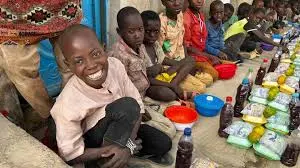
The President of the Association of Resident Doctors, University of Ilorin Teaching Hospital (ARD-UITH), Dr. Mariam Shiru, has advised that children under the age of six should not participate in Ramadan fasting, citing potential health risks.
Speaking with the News Agency of Nigeria (NAN) on Tuesday in Ilorin, Dr. Shiru explained that young children are still in critical developmental stages and require regular nutrition for proper growth and energy.
“Fasting can lead to dehydration, low blood sugar, and other health complications in young children,” she stated.
She noted that children between the ages of six and twelve could be gradually introduced to fasting under adult supervision, beginning with shorter periods such as skipping a meal or fasting for a few hours.
Teenagers around the age of 13, she added, could typically fast for longer durations, provided they are in good health.
Dr. Shiru stressed the importance of proper planning, hydration, and medical consultation for children with pre-existing conditions such as diabetes or kidney disease before attempting to fast.
Beyond children, she also highlighted concerns for the elderly, pregnant women, and individuals on medications.
She advised that elderly individuals with conditions such as diabetes, kidney disease, or heart disease may need to modify or avoid fasting, as it could impact their medication and overall health.
“Certain medications, such as blood thinners and diabetes treatments, may be affected by fasting,” she warned.
Regarding pregnant women, Dr. Shiru emphasized that fasting during the first trimester (one to 12 weeks) is not advisable due to critical fetal development.
However, fasting in the second and third trimesters may be considered under strict medical supervision.
She urged families to prioritize health and consult medical professionals before making fasting decisions for children, the elderly, and pregnant women.














